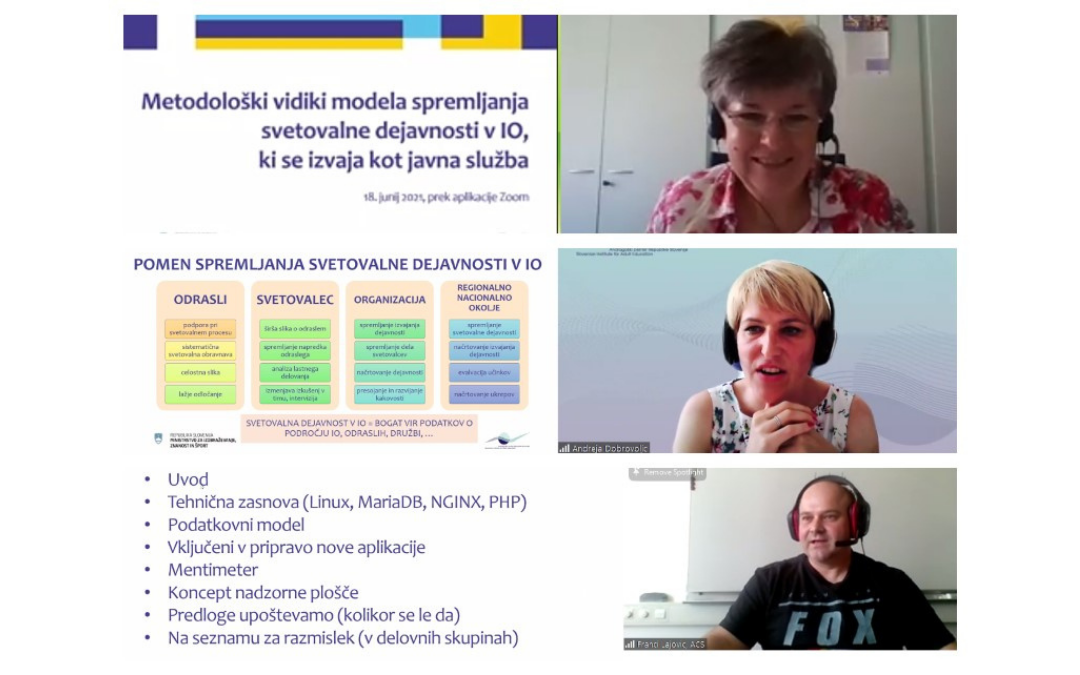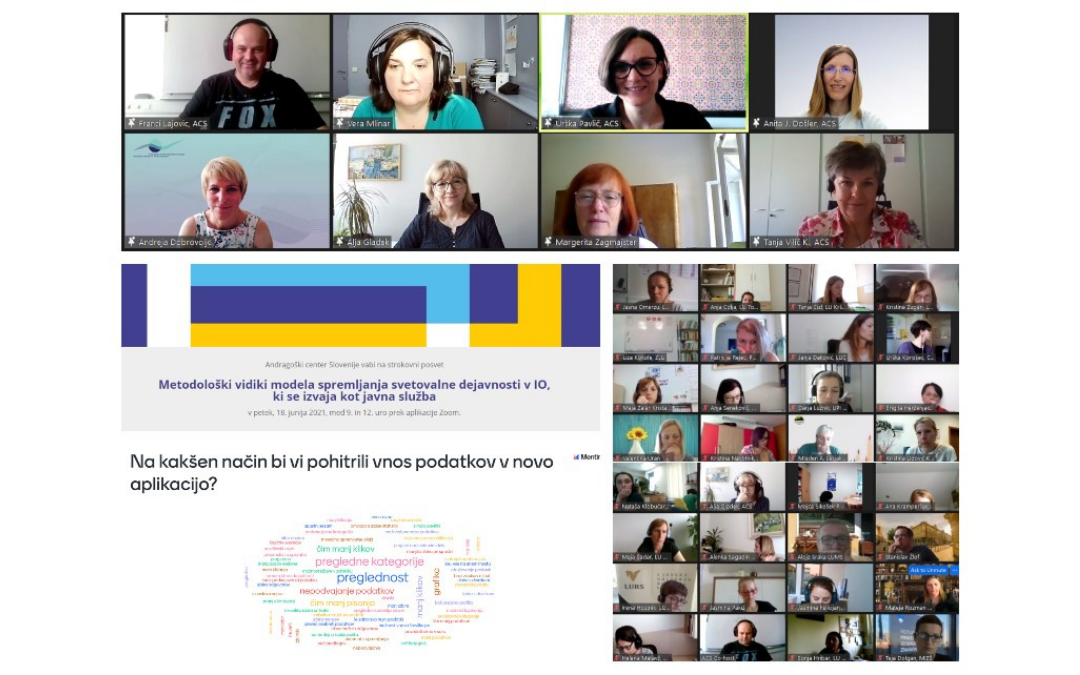As of 1 January 2021, guidance in ALE has been part of public services in ALE. We have already written about this in the SIAE Newsletter.
The content, organisation of guidance, conditions for implementation, among them staff and other conditions, records, documentation as well as the evaluation and development of quality in guidance in ALE are defined in the Guidelines for implementing adult education guidance as a public service.
The SIAE is also preparing a comprehensive model for monitoring guidance. In 2020, we already prepared the guidelines for monitoring guidance that takes place as part of the public services in ALE, and in 2021, we upgraded it. The model encompasses data that will enable the monitoring of not only legally required data but also the achievement of the set goals of guidance as public service at different levels and in a comprehensive manner:
- from the level of an adult, monitoring provides professional, comprehensive and systematic guidance;
- from the level of a counsellor, monitoring provides a broader picture of an adult, an opportunity to monitor their progress, exchange experiences and plan further work;
- from the level of an organisation, monitoring provides the opportunity to plan and implement the guidance, monitor counsellors and evaluate the quality of guidance;
- from the level of the regional/national environment, monitoring provides the opportunity to monitor guidance, analyse and evaluate the effectiveness of guidance, plan the development of guidance in the future.
We strived to include all stakeholders in the preparation of the model for monitoring. Therefore, we organised two expert consultations, which policymakers in the field of ALE and guidance in ALE attended as well as experts working in various types of guidance in Slovenia, directors and counsellors of ALE organisation, who carry out public service following the Adult Education Act, other interested ALE professionals and SIAE employees.
At the first consultation, before encouraging a debate on the model for monitoring, we presented the participants the broader importance of monitoring guidance, which is not only necessary due to legislative requirements. We substantiated it by showing the monitoring of guidance in other fields in Slovenia (at the Employment Service of Slovenia and regular primary and secondary education). At the second consultation, we discussed the importance of monitoring in terms of further development and research of guidance as a public service in the ALE.
In the second part of both consultations, participants were actively involved. They considered the content and technical aspect of the monitoring of guidance. Based on the obtained proposals and discussions, we amended the model. On this basis, we have developed a new, modern application, which counsellors will use to monitor their work. It is currently still in the testing phase. It will enable us to achieve all the purposes of monitoring guidance carried out as a public service in the ALE in Slovenia.
Andreja Dobrovoljc, MSc (andreja.dobrovoljc@acs.si), and Dr Anita Jug Došler (anita.jug.dosler@acs.si), SIAE


